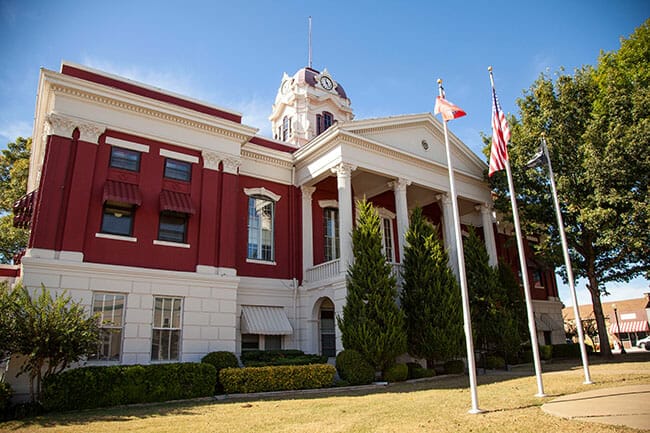

Uh oh...
It appears that you're using a severely outdated version of Safari on Windows. Many features won't work correctly, and functionality can't be guaranteed. Please try viewing this website in Edge, Mozilla, Chrome, or another modern browser. Sorry for any inconvenience this may have caused!
Read More about this safari issue.

Being the oldest kid in the class did not dampen my enthusiasm for learning about support beams, suspension bridges and the strongest shape for supporting a structure (the egg).
In fact, the energy and knowledge of the instructor only increased my interest in the morning’s topic: civil engineering.
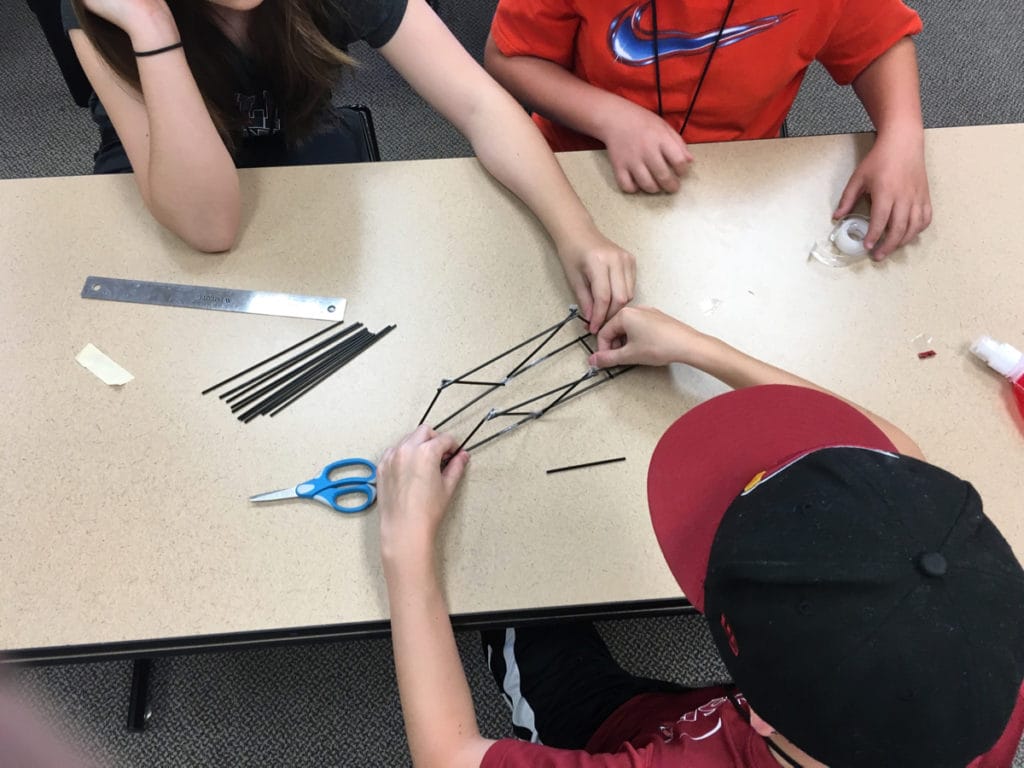
OK, I wasn’t technically a student – at least not one who had paid the week’s tuition – but I had fun hanging out for an hour with sixth- and seventh-graders at summer engineering camp at the University of Arkansas Community College at Batesville. (The afternoon sessions were for eighth- and ninth-graders.)
UACCB was one of three host sites for the University of Arkansas’ Explore Engineering camps this summer. (The others are in Fayetteville – where the UA’s main campus sits – and Bentonville, and the program makes up one-fourth of the College of Engineering’s summer camp offerings. UA also offers Engineering Girl Camp, Engineering Summer Academy and Robotics Engineering Camp. Why didn’t they have these when I was a kid?)
Explore Engineering covers the College of Engineering’s eight discipline areas and explores such topics as structure design, robotics, electronics, water filtration, roller coasters and chemical reactions.
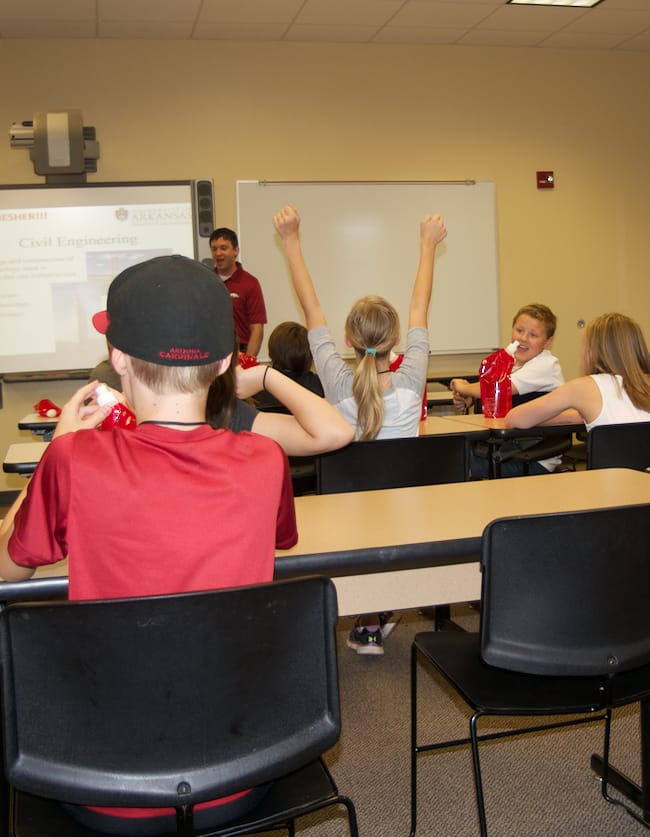
The program’s director, Eric Specking, said he hopes to expand the camps to more Arkansas regions in the next couple of years.
Specking received his engineering degree at UA-Fayetteville, where the program had its genesis. His enthusiasm – for his subject matter, for sharing his knowledge with students and for helping the kids figure out their place in the world – was obvious even before I met him. We had traded emails for three months, and he was always accommodating and eager to answer questions.

Both of the week’s instructors, Specking and UA graduate student Annika Tabassum, earned praise for their work in the program.
As she prepared to lead the afternoon session, Tabassum told me that Specking was a better speaker, but a UACCB staff member said the grad student had great rapport with the class members.
“They’re a good combination,” said Brian Shonk, vice president for academics. “He’s dynamic, and she relates really well to the kids.”
NOT JUST ABOUT ENGINEERING
Specking is an ambassador.
But not just for engineering. His presentation includes engineer-speak, yes (he used industry terms, although he spoke on a level an 11-year-old could understand), but also an effort to pass along real-world skills.
After the lecture, he instructed the 17 kids to break into groups of three or four – “but not the same groups you were in yesterday.” In other words, no buddying up with your BFF for every project. (They were about to see who could build the sturdiest bridge out of plastic straws and transparent tape.)
When the kids chose the same groups they were in previously (of course), Specking counted off in sixes and made new groups. Once everyone was settled, he asked, “Do you like your groups?”
“NO!” was the collective response.
“Good!” Specking said. “In the real world, you don’t always get to work with people you like!”
Life lessons.
A PURPOSE AND A PLAN
While Specking’s unofficial title could be “ambassador,” officially he is director of undergraduate recruitment, outreach and summer camps for the UA’s College of Engineering.
When he was in high school, he wanted to be a “computer engineer,” he said. But, while the idea sounded good and made his mother proud, he “didn’t know what computer engineering was.” Specking wants to sketch a clearer picture for the future engineers he aims to inspire.
“How can [you] really know what you want to do if you don’t know what’s out there?” he said. “Many Arkansans … don’t know what the possibilities in the world are, so I want to help do our little part just for engineering. So that’s what these camps are really for, are about exposure – helping excite students about STEM in general to get them to want to do more and help the world become a better place.”
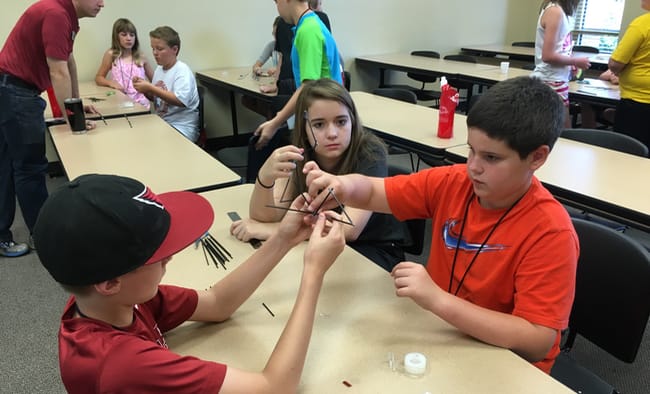
Ethan Price (in ball cap) and Ashlyn Harris, both 11, and Jaden Cooper, 10, took second place in the bridge-building competition.
It seems to work.
Ethan Price, who’ll be 11 until August (and wanted me to know I could go ahead and list him as 12), didn’t expect to be wowed at engineering camp.
Ethan comes from engineer stock – dad (electrical) and Pop (aerospace/mechanical). And “electrical engineer” is one of his potential career choices. But so is “prosecuting lawyer,” he said.
Camp surprised him a little, though.
“It was a lot more fun than I was expecting.”
MUTUALLY BENEFICIAL
Not only does the UA System benefit by attracting students to its College of Engineering at the Fayetteville campus, the STEM classes and engineering camps allow UACCB to offer students of all ages access to programs it otherwise wouldn’t have the resources to support.
UACCB’s Shonk said UA-Fayetteville contacted the Batesville campus a couple of years ago “as part of a grant opportunity, to be involved with what they call the online STEM Prep Program.” The program is designed for students at two-year colleges who are interested in a degree in science, technology, engineering or math. Those students pay the same tuition as they would at their two-year school, representing a substantial savings over the UA’s main campus rates.
“They have one of the nation’s leading engineering programs,” Shonk said of the Fayetteville campus, and UACCB was pleased to become a partner.
“The STEM Prep Program offers the Introduction to Engineering class and several of the higher-level math classes that oftentimes we aren’t, as a community college, able to offer because we don’t have the number of students necessary to make that class … so we signed an agreement with them.”
Eventually, the STEM involvement led to the engineering camps that UACCB hosted this summer.
“So [STEM participants] receive credit on a transcript from UA-Fayetteville, that credit can be used at UACCB to satisfy their degree-completion requirements, and they’re only paying the UACCB tuition costs for those classes,” Shonk said.
“That partnership has grown over the years, to the point that … we’ve created two new degree programs. One is an associate of science degree in pre-engineering; the second is an associate of science degree in STEM,” he said. “Both of those programs grew out of the STEM Prep Program from Fayetteville and are designed to offer opportunities to our local students to complete an associate degree and be able to transfer to a four-year program at Fayetteville with little to no loss of credit.”
BUILDING BRIDGES
Enough academic talk. Back to the fun stuff.
After explaining a few concepts and defining some terminology, Specking challenged the students to a competition. The goal: to see which team could build the strongest “straw bridge” spanning a 10-inch “river” without touching the water; it must support a bucket of marbles without collapsing.
Results varied:
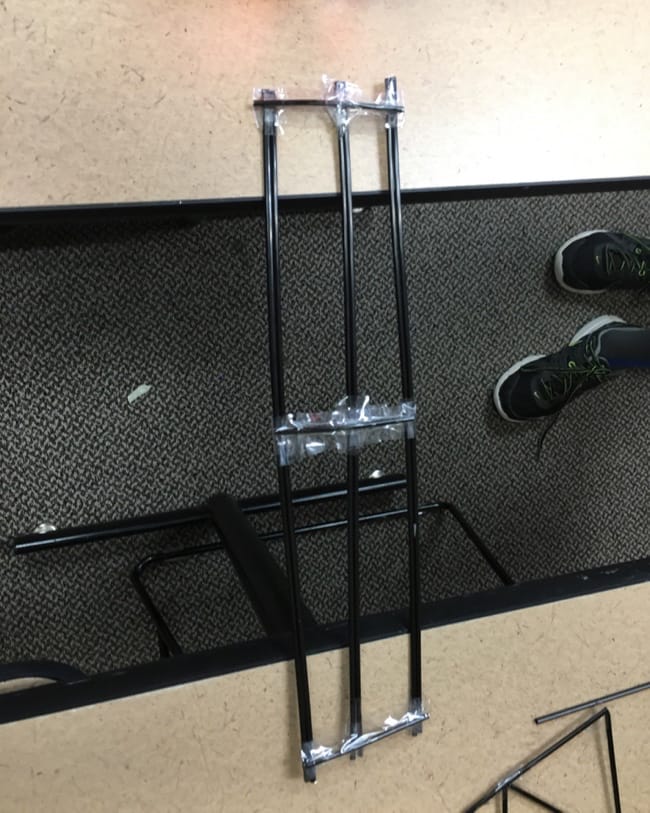
Enthusiasm varied, too.
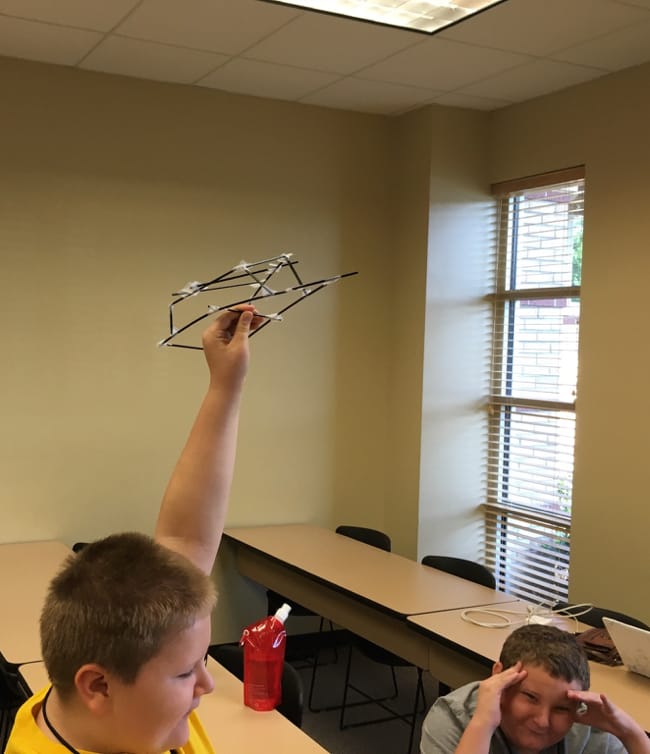
And, while not every graduate of Explore Engineering will go on to become an engineer of any sort, any child who says the camp wasn’t fun must have been in a different classroom.
For more information on the UA College of Engineering camps, visit engineering-camps.uark.edu or contact Eric Specking at (479) 575-7780 or especki@uark.edu.
We do the work.
You check your email.
Sign up for our weekly e-news.
Get stories sent straight to your inbox!
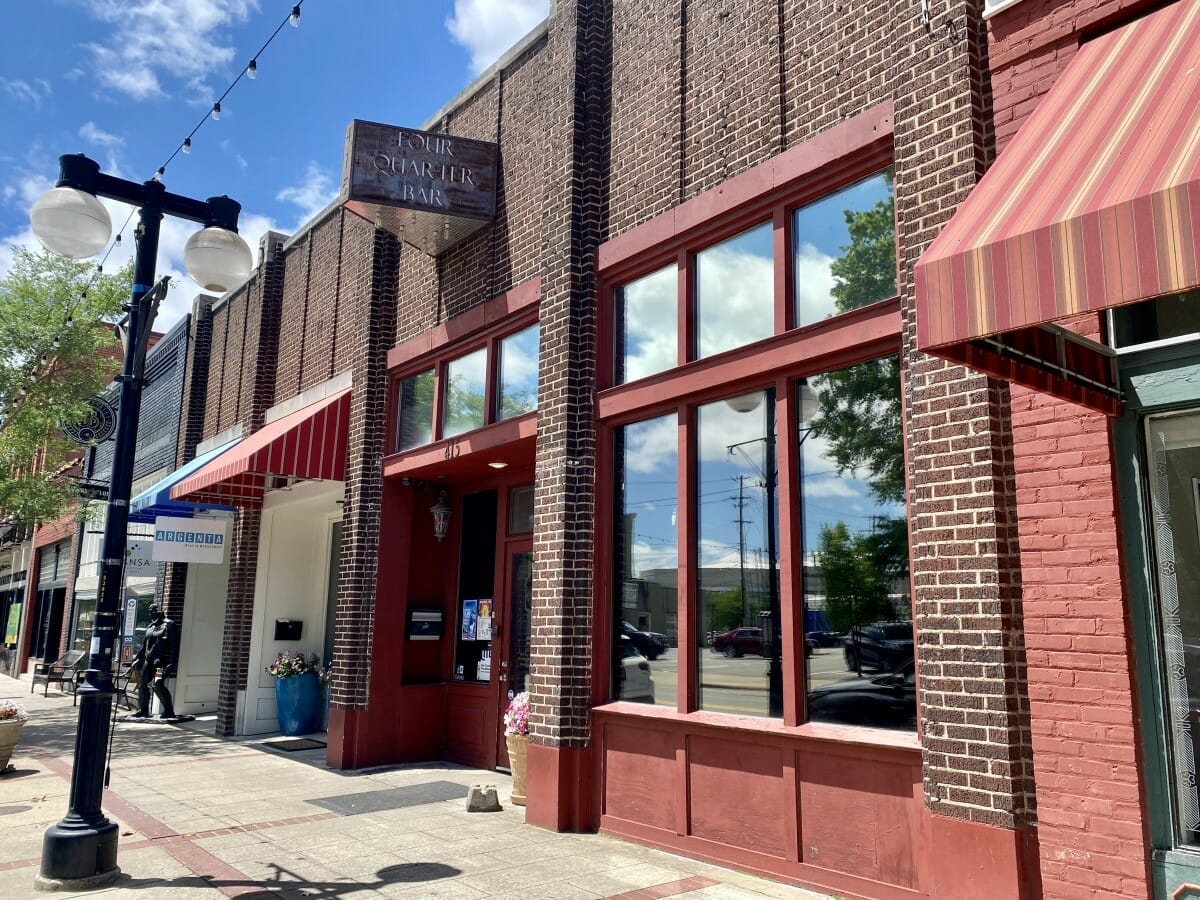

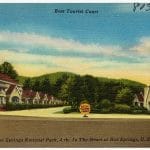
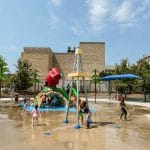


Like this story? Read more from Suzy Taylor Oakley
It must be heady stuff for an Arkansas teenager: Your picture...
In a room full of storytellers, editors and dignitaries, the only things...
Join the Conversation
Leave a Comment